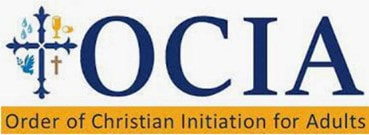Frequently Asked Questions
When and Where?
Sacred Heart of Jesus Parish joins with St. Mary's Village, St. Benedict, St. Joseph, St. Margaret Mary, and St. Patrick parishes for
the formation process which officially begins in August.
Who should I call to join?
Contact the parish office for more information.
I have already been baptized in another faith. Do I need to be baptized again?
The Catholic Church recognizes baptisms from many Christian denominations. If you were baptized in one of these, you would not be
baptized again, but would make a profession of faith in the Catholic Church before being confirmed and receiving Eucharist.
I have already been baptized Catholic, but have not received Eucharist and/or Confirmation. Should I join OCIA?
Ideally, if resources allowed, we would have a separate group for those who fall into this category, but because of numbers and because
most of the content is the same, we do combine those who have already been baptized with those in the OCIA.
OCIA classes are also good as a “refresher” for those who have been away from the Church for a while. I've been married before....will that be a problem?
Each situation is different, so it is difficult to answer this question generally. Let your RCIA team members know at the first session so
they can guide you to an answer.
What does the process consist of?
The Five Main Stages of OCIA.
During this period, some may decide that this is not the right time for them to consider membership in the Catholic Church. It is entirely up to the individual’s free will, and no pressure will be exerted against this decision.
During this period, the initial conversion is deepened and appropriated more deeply into the lives of the catechumens.
Throughout Lent, special prayers are offered at Sunday Masses for the elect and candidates – these are called “scrutinies.” These prayers are for strengthening grace and virtue, purification from all past evil, and any bonds that hinder them from experiencing God’s love. Throughout this period, the elect is invited to join with the whole Church in a deeper practice of charity works and the practice of fasting.
During this period, Breaking Open the Word continues, and Lent’s readings were chosen with the themes of continuing conversion in mind. Toward the end of the period, the Church continues the custom of “handing over” to the Elect the Creed (the summary of our faith) and the Lord’s Prayer (which represents its practice of continuing prayer after the command of Jesus, who taught us to pray).
Through the waters of baptism, a person passes into the new life of grace and becomes a member of the Body of Christ. By anointing the person with the Sacred Chrism, one is sealed by the power of the Holy Spirit and is then called to full participation at the Eucharistic Table, which marks full membership in the Catholic Church.
Sacred Heart of Jesus Parish joins with St. Mary's Village, St. Benedict, St. Joseph, St. Margaret Mary, and St. Patrick parishes for
the formation process which officially begins in August.
Who should I call to join?
Contact the parish office for more information.
I have already been baptized in another faith. Do I need to be baptized again?
The Catholic Church recognizes baptisms from many Christian denominations. If you were baptized in one of these, you would not be
baptized again, but would make a profession of faith in the Catholic Church before being confirmed and receiving Eucharist.
I have already been baptized Catholic, but have not received Eucharist and/or Confirmation. Should I join OCIA?
Ideally, if resources allowed, we would have a separate group for those who fall into this category, but because of numbers and because
most of the content is the same, we do combine those who have already been baptized with those in the OCIA.
OCIA classes are also good as a “refresher” for those who have been away from the Church for a while. I've been married before....will that be a problem?
Each situation is different, so it is difficult to answer this question generally. Let your RCIA team members know at the first session so
they can guide you to an answer.
What does the process consist of?
The Five Main Stages of OCIA.
- The Period of Inquiry (Length of Time Specific to the Individual)
During this period, some may decide that this is not the right time for them to consider membership in the Catholic Church. It is entirely up to the individual’s free will, and no pressure will be exerted against this decision.
- The Period of Catechumenate (4 months)
During this period, the initial conversion is deepened and appropriated more deeply into the lives of the catechumens.
- The Period of Purification & Illumination (6 weeks)
Throughout Lent, special prayers are offered at Sunday Masses for the elect and candidates – these are called “scrutinies.” These prayers are for strengthening grace and virtue, purification from all past evil, and any bonds that hinder them from experiencing God’s love. Throughout this period, the elect is invited to join with the whole Church in a deeper practice of charity works and the practice of fasting.
During this period, Breaking Open the Word continues, and Lent’s readings were chosen with the themes of continuing conversion in mind. Toward the end of the period, the Church continues the custom of “handing over” to the Elect the Creed (the summary of our faith) and the Lord’s Prayer (which represents its practice of continuing prayer after the command of Jesus, who taught us to pray).
- The Celebration of the Sacraments of Initiation (One night)
Through the waters of baptism, a person passes into the new life of grace and becomes a member of the Body of Christ. By anointing the person with the Sacred Chrism, one is sealed by the power of the Holy Spirit and is then called to full participation at the Eucharistic Table, which marks full membership in the Catholic Church.
- The Period of Mystagogy


